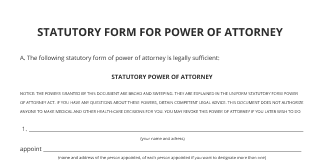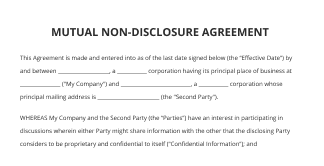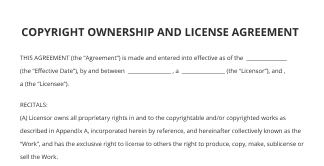Signature Arbitration Agreement Template Made Easy
Do more online with a globally-trusted eSignature platform
Standout signing experience
Robust reports and analytics
Mobile eSigning in person and remotely
Industry regulations and compliance
Signature arbitration agreement template, quicker than ever
Helpful eSignature extensions
See airSlate SignNow eSignatures in action
airSlate SignNow solutions for better efficiency
Our user reviews speak for themselves






Why choose airSlate SignNow
-
Free 7-day trial. Choose the plan you need and try it risk-free.
-
Honest pricing for full-featured plans. airSlate SignNow offers subscription plans with no overages or hidden fees at renewal.
-
Enterprise-grade security. airSlate SignNow helps you comply with global security standards.

Your step-by-step guide — signature arbitration agreement template
Using airSlate SignNow’s electronic signature any organization can increase signature workflows and sign online in real-time, giving an improved experience to consumers and staff members. Use signature Arbitration Agreement Template in a few easy steps. Our mobile-first apps make working on the go possible, even while offline! eSign contracts from any place in the world and make trades quicker.
Take a walk-through guideline for using signature Arbitration Agreement Template:
- Log in to your airSlate SignNow profile.
- Locate your record within your folders or upload a new one.
- Open up the template and make edits using the Tools menu.
- Place fillable boxes, add text and eSign it.
- List several signers using their emails and set the signing sequence.
- Specify which users can get an completed copy.
- Use Advanced Options to reduce access to the document and set up an expiry date.
- Press Save and Close when completed.
In addition, there are more innovative tools open for signature Arbitration Agreement Template. Include users to your shared work enviroment, view teams, and monitor cooperation. Numerous people all over the US and Europe concur that a solution that brings people together in a single cohesive digital location, is the thing that organizations need to keep workflows working easily. The airSlate SignNow REST API allows you to embed eSignatures into your application, internet site, CRM or cloud. Try out airSlate SignNow and get faster, smoother and overall more efficient eSignature workflows!
How it works
airSlate SignNow features that users love
See exceptional results signature Arbitration Agreement Template made easy
Get legally-binding signatures now!
FAQs
-
How do you draft an arbitration agreement?
Introduction. ... Basic Guidelines. Wording of the Arbitration Agreement. ... Parties Should Decide Between Institutional or Ad Hoc Arbitration. ... Parties Should Select the Place of Arbitration. ... Parties Should Determine the Number of Arbitrators. ... Parties Should Determine the Language of the Arbitration. ... Optional Guidelines. -
Can my employer force me to sign an arbitration agreement?
Answer: You don't have to sign the agreement, but the consequences of refusing to sign could be severe. Many employers ask new hires to sign an arbitration agreement: a contract in which the employee agrees to bring any legal disputes with the employer to arbitration, rather than to court. -
Who does the arbitration clause benefit?
Arbitration is a form of alternative dispute resolution where the two parties agree not to take their dispute to court. Instead, they agree to resolve the dispute by hiring an arbitrator to hear both sides. Arbitration is used in labor disputes, business and consumer disputes, and family law matters. -
What is a mutual arbitration agreement?
The arbitration agreement is often referred to as the 'foundation stone' of arbitration as it is a method of dispute resolution based on mutual party consent to arbitrate future or current disputes. An arbitration agreement encompasses an agreement by two or more parties to submit to arbitration either: \u2022 -
What is arbitration and how does it work?
Arbitration is a method of resolving disputes outside of court. Parties refer their disputes to an arbitrator who reviews the evidence, listens to the parties, and then makes a decision. ... Arbitration clauses can be mandatory or voluntary, and the arbitrator's decision may be binding or nonbinding. -
Can I be fired for not signing an arbitration agreement?
If your employer asks you to sign an arbitration agreement, you can refuse, but that may put your job in jeopardy. Usually, an employer can rescind an employment offer if a prospective employee refuses to sign the arbitration agreement. And an employer can fire an at-will employee who refuses to sign one. -
What are the steps in arbitration?
Arbitration is often used in resolve labor disputes. Typical steps in the arbitration process include initiation, selection of an arbitrator, a preliminary hearing, exchange and preparation of information, a hearing, post-hearing submissions, and an award. -
What happens at a personal injury arbitration?
In a personal injury case, the arbitrator also decides the amount of the award (that is, what amount the insurance company must pay the injured person). ... Second, the parties must agree upon who will serve as the neutral arbitrator. An experienced attorney or retired judge is usually the arbitrator. -
How do you start arbitration process?
The arbitration process usually starts with the complaining party giving notice to the other about their intent to arbitrate a dispute. The notice includes the nature and basis for the proceeding. Following this notice the other party has a period of time to file a written response. -
Can a doctor force you to sign an arbitration agreement?
You do not have to sign an arbitration agreement to seek medical care. If your doctor, nursing home or hospital insists on you signing an agreement it is not a good sign. ... Generally arbitration is not as favorable for patients as a jury trial. In most cases, an arbitration proceeding functions very much like court.












































